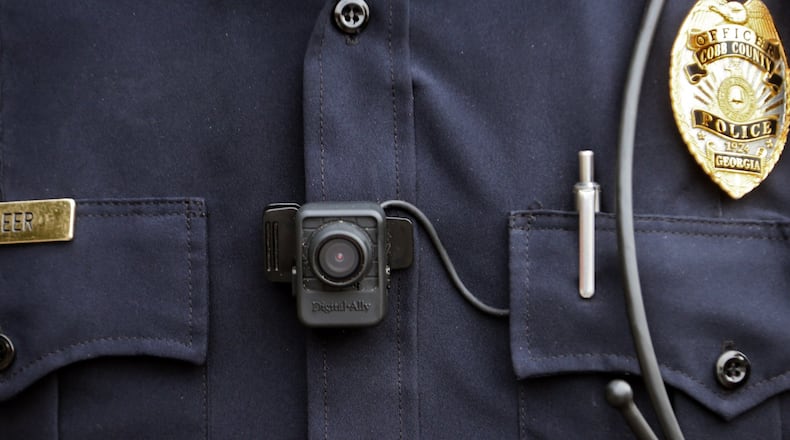Chances are the next time you’re pulled over by a cop in Gwinnett County, a camera could be recording the officer’s behavior. And yours.
Gwinnett is actively looking into purchasing police body cameras. So the next time you’re pulled over, watch what you say.
The increasing presence of these cameras in metro Atlanta raises all kinds of questions about public access to these videos.
Will your DUI video go viral?
Right now, Gwinnett has about 20 police body cameras, used by its motorcycle division. The department has budgeted over a million dollars for cameras over the next two years, but has yet to chose a vendor.
Officials say the cameras will provide more transparency on the part of law enforcement, and greater trust between cops and the community.
Over the past year, the urgency for body cameras has grown amid a national parade of tragedies between police and the public: ambush killings of officers in Dallas and Baton Rouge; controversial police-related deaths in Minneapolis and Milwaukee; riot squads squaring off with angry protesters.
At its best, body camera video can offer a clear picture of a disputed incident.
“Now, officers are so often second-guessed,” said Maj. Stephen Fore of the DeKalb County Police Department. “There’s more need for transparency with the public, to show that an officer is coming out here doing their best.”
Will body cameras usher in a new era of policing in metro Atlanta?
“I’m optimistic. We’re at a low point with some communities having faith in law enforcement,” said Frank Rotondo, executive director of the Georgia Association of Chiefs of Police.
“I think it will only help.”
But controversy exists. While encouraged by the potential of body cameras, Francys Johnson, the NAACP Georgia chapter president, said the devices hardly guarantee a level playing field between police and the public, or justice.
Police have been using dashboard cameras in patrol cars for years now. “The use of cameras has not prevented the crisis we are in now,” Johnson said.
He added, “If we don’t fix community-based policing and improve the relationship between police and the community, then all these body cameras will be doing is recording the deaths of more citizens at the hands of police.”
About the Author
Keep Reading
The Latest
Featured

